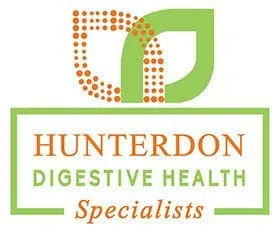Call Us Today
267 US HWY 202 - 31 S
Flemington, NJ 08822
203 Omni Drive
Hillsborough, NJ 08844
-
COLON CANCER SCREENING
posted: May 12, 2023.
COLORECTAL CANCER IS THE 2nd LEADING CAUSE OF CANCER DEATHS IN OUR COUNTY. Roughly150,000 new cases of colorectal cancer are diagnosed each year. ANYONE of ANY AGE can be affected BOTH MEN and WOMEN Read more -
What exactly is Gastroesophageal Reflux Disease (or GERD)?
posted: May 12, 2023.
Gastroesophageal reflux (or acid reflux) occurs when contents from your stomach reflux back up into your esophagus or mouth. When we eat, food is carried from the mouth to the stomach Read more -
SHORTENED VERSION: What is Nonalcoholic fatty liver disease (or NAFLD)?
posted: May 12, 2023.
Nonalcoholic fatty liver disease is a build up of extra fat in the liver NOT caused by alcohol. The liver normally has some fat; however, if more than 5-10% of Read more -
So you say I have Fatty Liver? What’s the big deal?
posted: May 12, 2023.
Nonalcoholic fatty liver disease (or NAFLD) is a condition where excess fat is stored in your liver. This buildup is NOT caused by alcohol. NAFLD is becoming increasingly common in Read more -
Barrett’s Esophagus: I thought only men got this?
posted: May 12, 2023.
Barrett's esophagus occurs when cells that normally line the lower esophagus change as a result of chronic acid exposure, and become more like cells found in the stomach and intestines. Barrett’s Read more -
What’s Pelvic Floor Dysfunction?
posted: May 12, 2023.
The pelvic floor muscles act as structural support to hold your bladder, uterus, cervix, vagina, and rectum in place within your body. These muscles stretch from your tailbone to your pubic Read more -
What causes constipation in women?
posted: May 12, 2023.
Not drinking enough water Too much caffeine and not enough water Alcohol Not getting enough fiber in your diet Consuming highly processed foods Stress Leading a sedentary lifestyle, not exercising, sitting for prolonged periods of time, Read more -
Are women are more susceptible to constipation than men? It seems that way
posted: May 12, 2023.
Constipation is defined as: 3 or fewer bowel movements per week Having bowel movements that are hard, dry, pebble-like, and/or difficult to pass, or The feeling that you’re unable to completely empty your Read more -
What is anemia?
posted: May 12, 2023.
Anemia is defined as a decrease in the number of red blood cells (or RBCs) in your blood. There are many types of anemia. Iron deficiency anemia occurs when you don’t Read more -
What’s the big deal about iron deficiency?
posted: May 12, 2023.
Iron deficiency can make you feel tired and weak. It can lead to anemia, or not enough red blood cells in your body. Iron is necessary to make red blood cells. These Read more -
How is H. pylori Treated?
posted: May 12, 2023.
The goal of treatment is to get rid of the bacteria, to heal ulcers if they are present, and prevent ulcers from recurring. Typically, a combination of two antibiotics and an Read more -
Does H. pylori cause cancer? What are the complications of untreated H. pylori?
posted: May 12, 2023.
Complications associated with H. pylori infection may include: Inflammation of the stomach (gastritis) and duodenum (duodenitis) Peptic Ulcer Disease Anemia due to bleeding ulcers Bleeding ulcers Perforation of the GI tract MALT (mucosa-associated lymphoid tissue) lymphoma. People with Read more -
What are the signs and symptoms of H. pylori?
posted: May 12, 2023.
A dull, gnawing stomachache after eating or in the middle of the night when the stomach is empty, usually in the upper mid-abdomen (epigastric area) Nausea, vomiting, indigestion, heartburn, acid taste Gas, Read more -
What’s Helicobacter pylori (H. pylori)?
posted: May 12, 2023.
H. pylori is a bacteria that can cause inflammation and ulcers in your stomach and small intestine. It affects roughly 50-60% of adults worldwide. Research suggests H. pylori may be responsible Read more -
What can I do to improve my constipation at home?
posted: May 12, 2023.
Follow a balanced diet to promote a healthy weight and overall feeling of health and wellbeing Avoid processed foods Minimize alcohol Limit caffeine Stay hydrated: WATER, WATER, WATER! Avoid food triggers, which can vary from person to Read more -
Constipation
posted: May 12, 2023.
How do I know if I’m constipated? Constipation means that stools don’t pass often, or pass less than three times per week. You may have hard stools that are difficult to pass, Read more
Contact Us
Our Location
Find us on the map
Hours of Operation
Our Regular Schedule
Hunterdon Digestive Health Specialists
Monday:
8:00 am-6:00 pm
Tuesday:
8:00 am-7:00 pm
Wednesday:
8:00 am-5:00 pm
Thursday:
8:00 am-6:00 pm
Friday:
8:00 am-7:00 pm
Saturday:
*Contact office to confirm Saturday hours and availability*
Sunday:
Closed
